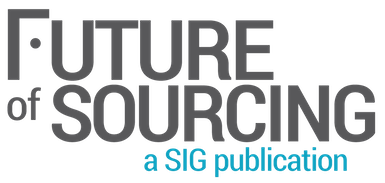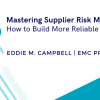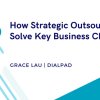Are You Ready for the Next Crisis?
The COVID-19 pandemic created a crisis of epic proportions and left leaders in every industry scrambling to react. Procurement leaders across the globe saw the weakness in their supply chains and needed to reinvent their ability to manage the data in order to make critical decisions. In fact, according to a recent survey by the Institute for Supply Management, upwards of 75% of companies saw supply chain disruptions in the wake of COVID-19.
While we are hopefully moving beyond this recent turmoil, procurement leaders need to be ready for the next crisis. To do this, organizations need to have quick access to accurate, transparent and trustworthy data.
Procurement Leaders Identify Top Challenges
We recognize that the COVID-19 pandemic proved to very challenging for procurement leaders all over the world. Some of the biggest issues supply chain networks faced stemmed from having much of their suppliers offshored. While offshoring has historically allowed companies to keep costs lower, it also comes with obvious drawbacks—which were unfortunately brought to light at the start of the pandemic.
Many procurement leaders whose supply chains were primarily offshored in China saw longer lead times, delays in order completion, a lack of supply chain information and limited options for transporting their goods.
Some of these challenges and disruptions were further impacted by the need to combat COVID-19. For safety reasons, many manufacturers in China were operating at a reduced capacity, slowing production. Once the demand for certain goods increased, many companies were unable to fulfill the demand based on their original forecasts.
For example, when consumers were stocking up on toilet paper and disinfectant wipes, suppliers struggled to meet the demand, and retailer shelves were left bare. In an effort to overcome these challenges, companies tried to find alternative suppliers that were closer to home.
However, many organizations did not have the insight into supplier information to make this transition. In a study done by Tealbook and Wakefield Research, this is still very much a problem today: 30% of procurement leaders say they fear missing out on supplier innovation.
The process of finding new suppliers continues to be arduous for many. 57% of procurement leaders are still entering supplier data manually, according to the same study, leading to higher costs, more chances for human error and less opportunity for strategic planning.
3 Steps to Become More Resilient
In order to develop a supply chain that is able to withstand crises, you need to have a strong data foundation. Having access to the right information allows for greater diversity and flexibility within your networks, and it can also help protect against costly disruptions.
1. Consider Your Process
The first step to ensure a strong data foundation is to look at the processes in place to find and manage that data. We see a lot of companies attempting to aggregate data manually. That can be very time-consuming and costly. Especially in times of crisis, manual data management lacks the speed and flexibility to make quick decisions.
2. Keep the Data Accurate and Fresh
You have to look at the data itself and what is being done to keep it accurate and fresh. Too often, we see data that is collected one time and never updated, leaving procurement leaders with siloed, stale information.
In order to have the best data possible when you need to react to a crisis, processes need to be in place that allow for the data to be consistently refreshed, checked for duplicates, and other changes or inaccuracies, and updated in close to real-time.
3. Find Diverse Suppliers
Whether your company works with a few dozen or a few thousand suppliers, there is always room for diversifying. When crisis strikes, you may find that your current suppliers are no longer able to meet demands. This makes the ability to quickly find and work with more diverse suppliers even more important—it could be the difference between maintaining processes or losing revenue.
However, finding more diverse suppliers is not always easy. This brings us back to the way a company collects and manages data. If you’re doing so manually, it can take too long to find suppliers to help maintain your processes. With an automated system in place, you can find suppliers that match your needs in a fraction of the time and preserve your business.
The COVID-19 pandemic is one of the most difficult crises ever encountered by the procurement industry—but it likely won’t be the last. Making it through the next disruption will require procurement to take a hard look at supplier data and consider ways to improve performance. When the inevitable next crisis disrupts our lives, having access to accurate and trustworthy supplier information can make the difference between dealing with hardships or achieving success in difficult times.









